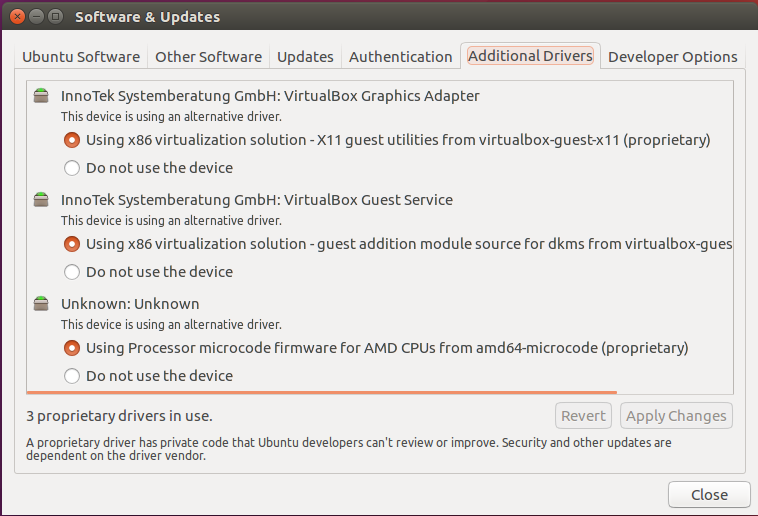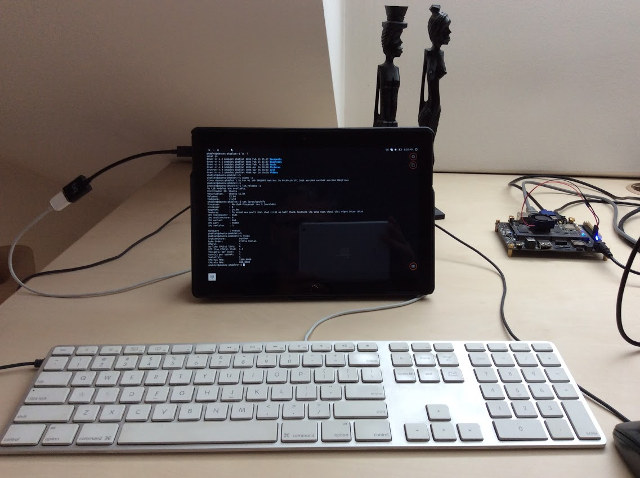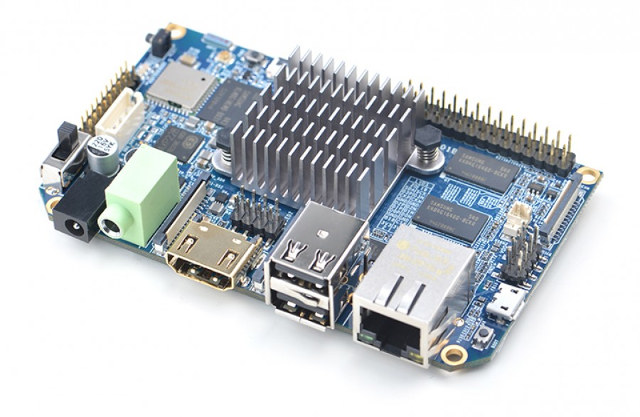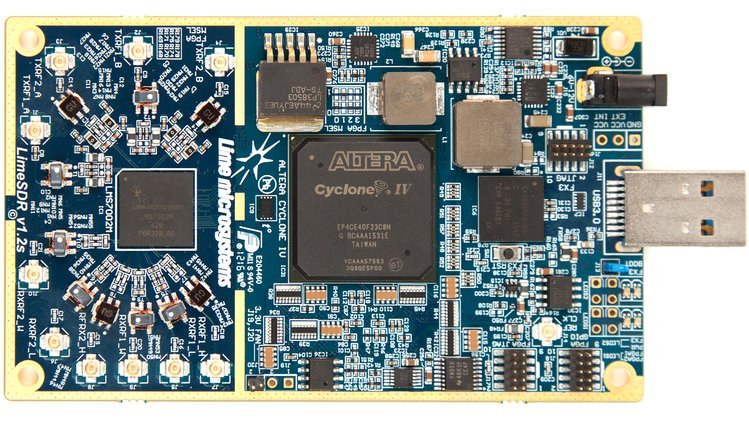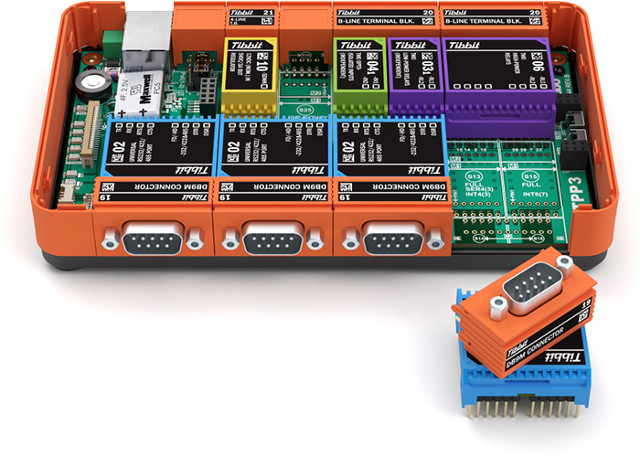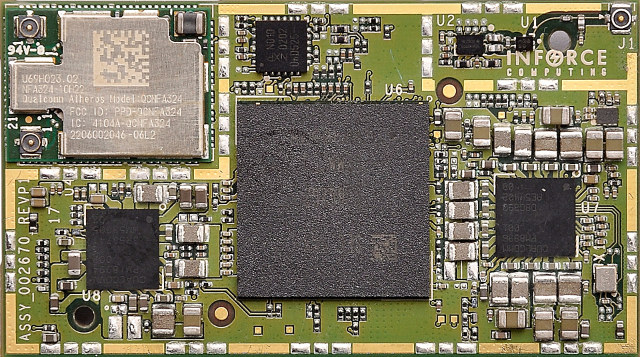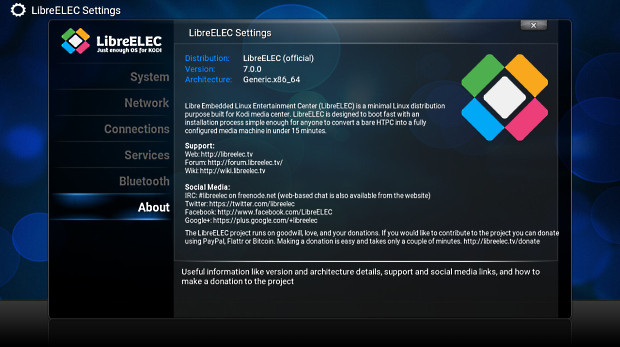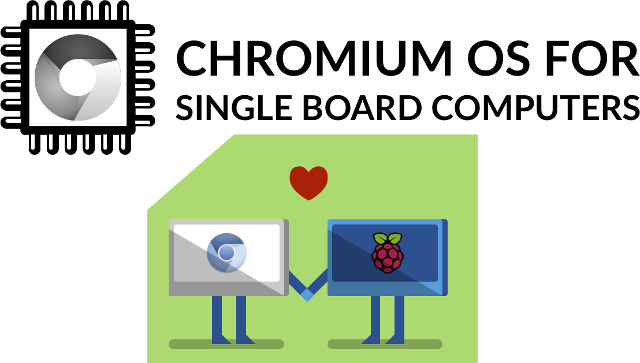My main computer is running Ubuntu 14.04.4 LTS, and I’m currently waiting for the Ubuntu 16.04.1 before upgrading to the latest version, which should happen in July. In the meantime, I have upgraded one of my VirtualBox image from Ubuntu 14.04 to Ubuntu 16.04, but I had only two options to set the resolution: 1024×768 or 800×600. This is quite a common problem, and usually the solution is to install VirtualBox additions, but this would not do for me. After trying several solutions, including disabling 3D graphics support, without success, I decided to check Additional Drivers, and I noticed only VirtualBox Graphics Adapter driver was enabled. So I also enabled Innotek Systemberatubg GmbH: VirtualBox Guest Service, and Processor microcode firmware for AMD CPUs, and this fixed the issues most likely thanks to the former. I’m running VirtualBox 5.0.18 installed from the ppa. Jean-Luc Aufranc (CNXSoft)Jean-Luc started CNX Software in 2010 […]
Setup Guide & Mini Review of BQ Aquaris M10 Ubuntu Edition Tablet from a Developer’s Perspective
BQ Aquaris M10 UBuntu Edition is the first officially supported Ubuntu tablet on the market. Blu, a frequent commenter on this blog, has purchased the Full HD version, and in the guest post below, shares his experience setting up the device for development purpose, before shortly providing his overall impressions about the tablet itself. Quick introduction Ever since I had to retire my trusty-but-ancient ARM notebook (a Genesi Efika iMX51) I’ve been looking for a new ARM notebook or perhaps a 2-in-1 device, that I could use for development on the go. The basic requirements are long battery life, passive cooling and reasonable price. Also, Just Enough Power™ for running vim, a couple of toolchains (gcc/clang with gold) and, well, enough grunt to run my coding experiments. Naturally, BQ M10 Ubuntu Edition immediately got my attention to the extent of me placing an order, which got delivered this past week. […]
NanoPC-T3 Octa-core Cortex A53 Single Board Computer Sells for $60
FriendlyARM launched NanoPC-T2 single board computer based on Samsung 5P4418 quad core Cortex A9 processor about 3 months ago, and the company has now an update based on Samsung S5P6818 Octa-Core A53 processor with the exact same interfaces and features including Gigabit Ethernet, WiFI, and Bluetooth, HDMI 1.4a, 30-pin expansion headers, etc… NanoPC-T3 specifications: SoC – Samsung S5P6818 octa core Cortex A53 processor @ up to 1.4GHz with Mali-400MP GPU System Memory – 1 or 2GB 32bit DDR3 RAM Storage – 8GB eMMC flash, and 1x SD card slot Connectivity – Gigabit Ethernet (RTL8211E), 802.11 b/g/n WiFi and Bluetooth LE 4.0 (Ampak AP6212) with on-board chip antenna and IPX antenna connector Video Output / Display I/F- 1x HDMI 1.4a, LVDS, MIPI DSI, parallel RGB LCD Audio I/O – HDMI, 3.5mm audio jack, on-board microphone Camera – 1x DVP interface, 1x MIPI CSI interface USB – 2x USB 2.0 type A host […]
LimeSDR Open Source Hardware Software Defined Radio Goes for $199 and Up (Crowdfunding)
Canonical and Lime Micro showcased SoDeRa software defined radio (SDR) a couple of months ago, with a promise to launch a crowdfunding campaign later this year. They’ve fulfill their promise, and launched the open source SDR, renamed to LimeSDR, on Crowdsupply. LimeSDR board specifications: FPGA – Altera Cyclone IV EP4CE40F23 Altera FPGA compatible with EP4CE30F23 System Memory – 256 MB DDR2 SDRAM RF Lime Microsystems LMS7002M RF transceiver with continuous coverage of the frequency range between 100 kHz and 3.8 GHz; 61.44 MHz bandwidth 4 x TxOut and 6 x RxIn U.FL connectors Power Output (CW): up to 10 dBm Wi-Fi, GSM, UMTS, LTE, LoRa, Bluetooth, Zigbee, RFID, Digital Broadcasting, configurable through apps. USB – 1x micro USB3 via CYUSB3014-BZXC Cypress Microcontroller for control, data transfer and power Misc – Status LEDs, RGB LEDs, 4x switches Power – USB or external power supply Dimensions – 100 mm x 60 mm The board […]
Tibbo Project System is a Modular Linux IoT Prototyping Platform based on TI Sitara Cortex A8 Processor
If you’ve found yourself needing to quickly demo a system that does not look like a mess of wire to a customer, or your project is requires low production volumes, making the cost of designing your own and mass-producing the hardware prohibitive, Tibbo Project System might be worth looking into. It features an almost bare board powered by Texas Instruments Sitara processor, and a large area for Tibbit blocks to add features as needed, as well as an enclosure. Size 3 Linux Project PCB (LTPP3) specifications: SoC – Texas Instruments Sitara AM335x Cortex A8 processor up to 1.0 GHz System Memory – 512 MB DDR3 Storage – 512 MB NAND flash, 2KB EEPROM, optional micro SD slot Connectivity – 10/100M Ethernet (RJ45), optional WiFi (via LW1000 module) and GPRS connectivity (via Tibbit #47) Expansion – 51 I/Os: 7x tiles 14x sockets for Tibbit module including 4x with UART capability up […]
Inforce 6601 micro SoM Snapdragon 820 System-on-Module Embeds WiFi, Bluetooth and GPS
We’ve already seem Intrinsyc’s Snapdragon 820 development board and module, but there’s now an alternative thanks to Inforce Computing 6601 micro SoM which is pin-to-pin compatible to the company’s earlier Inforce 6401 and Inforce 6501 Micro SOMs, also based on Qualcomm Snapdragon processors, and works with the same SYS6501 carrier board. Inforce Computing 6601 Micro SoM specifications: SoC – Qualcomm Snapdragon 820 (APQ8096) quad core ARMv8 processor with two “Gold” cores up to 2.2 GHz, two “Silver” cores up to 1.6 GHz, Adreno 530 GPU with support for OpenGL ES 3.2, OpenCL 2.0, and Vulkan, as well as Hexagon 680 DSP up to 825 MHz System Memory – 4GB LPDDR4 @ 1866 MHz Storage – 64GB UFS 2.0 gear 3 flash up to 5.83Gbps, 1x micro SD card 3.0 interface for support for to HS400, optional eMMC 5.1 flash. Connectivity – Bluetooth 4.1 & 2×2 dual band 802.11 b/g/n/ac Wi-Fi […]
LibreELEC (OpenELEC Fork) v7.0.0 Released with Kodi 16.1
It’s not always easy to get along in life, and recently this has been true in Kodi developer community and related project, with Koying leaving his role as the main Kodi Android developer, possibly meaning Kodi 17 won’t get an Android port, and more recently several OpenELEC developers, not satisfied with some of the current project developments, decided to fork it, and create LibreELEC. The team of 25 or so members has now released LibreELEC v7.0.0 based on Kodi 16.1 which had also been released a few days ago. The changelog only reads: The 7.0.0 release contains Kodi Jarvis 16.1 (final) and a fix for Verisign SSL certificate changes that impacted Pandora add-on users. It also addresses a bluez crash, a firmware update for Intel Skylake users, and a fix for an Amlogic CEC issue on WeTek Play/Core. Most importantly it also contains our new logo branding. The images are […]
Chromium OS for SBC Aims to Turn Popular Development Boards into Chromeboxes
A team of developer has come together last December in order to provide Chromium OS, the open source project which Chrome OS is based on, to single board computers such as Raspberry Pi boards. So far, they’ve provided Chromium OS images for Raspberry Pi 2 & 3, but more boards should be supported in the future. The latest version 0.5 release is said to be usable, but WiFi, Netflix, and HTML5 video are not working. The installation procedure is standard. You simply need to download and uncompress the archive (e.g. SamKinison_v0.5_Pi3_16GB.tar.xz), and dump it on a micro SD card with Win32DiskImage or dd. They have released different images for Raspberry Pi 2 & 3, and different SD card sizes (2GB and 16GB). Chromium OS is using 12 partitions, so that may be why they don’t provide a single image and resize the file system during the first time. You can […]


